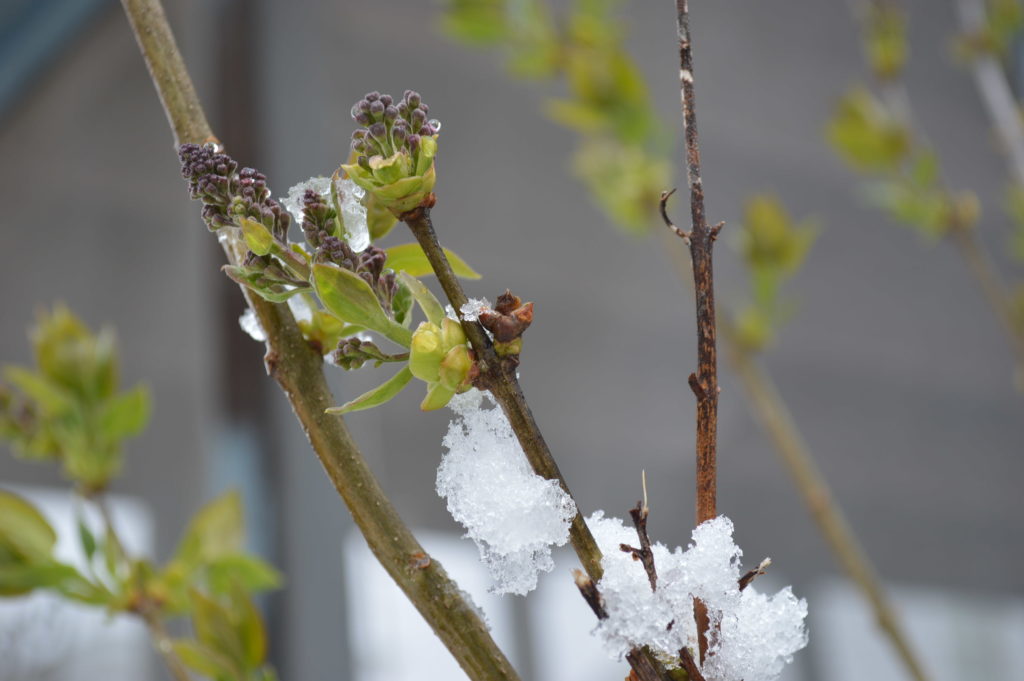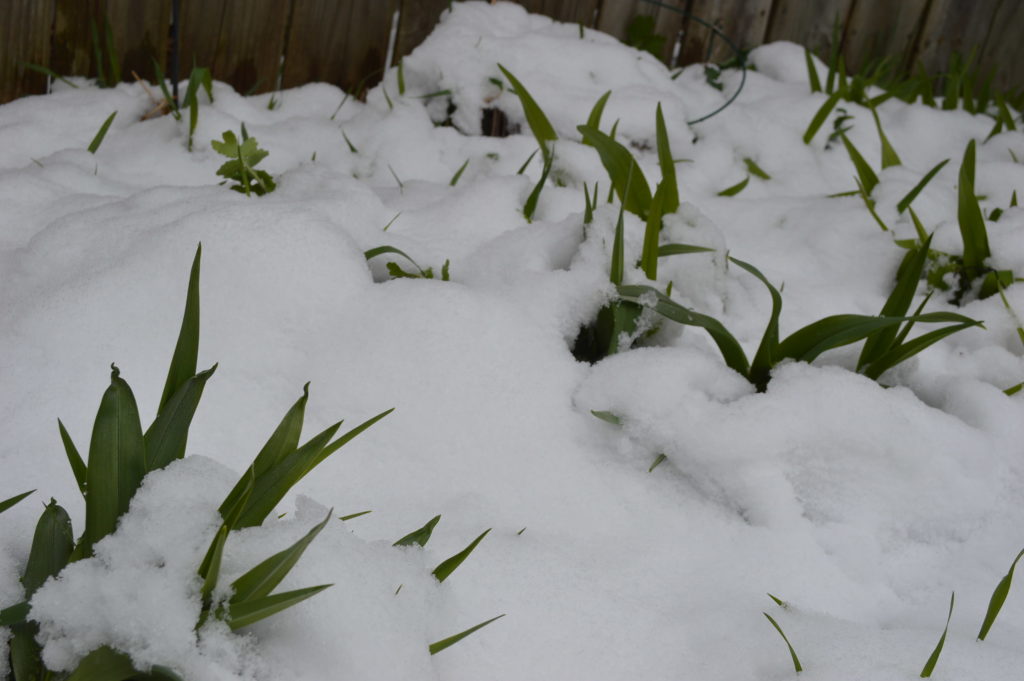
Snow clings to a budding lilac bush in Iowa during mid-April. A Czech legend warns against planting certain plants too early. (photo/Cindy Hadish)
When temperatures climb in early spring, gardeners can be tempted to get everything in the ground, but in the Midwest, it’s best to heed a warning brought here generations ago by Czech immigrants.
Known under various names, including the Three Frozen Kings, the three icemen – tři ledovi muži – or Three Ice Saints, Three Frozen Men or Three Iron Men, the Czech legend warns against planting tender crops too early in case of a late frost.
More: Morel mushrooms pop up as sign of hope
Years ago, Olga Drahozal, music teacher and leader of the Czech Plus Band in Cedar Rapids, Iowa, passed along the following about this piece of gardening lore.
According to the legend, the three kings or saints – Pankrac on May 12, Servac on May 13 and Bonifac on May 14 – were frozen when temperatures dropped while they were fishing at sea. On May 15, St. Zofie came along with a kettle of hot water to thaw out the three frozen kings.
The legend serves as a warning to protect tender plants against a possible late frost.
While many vegetables, such as peas, kale, radishes, cabbage, beets and lettuce, can be planted sooner in the Midwest, wait until May 15 to plant tomatoes, peppers, cucumbers, squash and other tender vegetables and flowers outside, or at least provide them with protection in case overnight temperatures drop below freezing.
Perennials, such as daylillies and hosta, can be planted before the last average frost date, and it’s often even preferable before the heat of summer hits.
Related: See photos of the Czech Heritage Foundation Royal Court

Daylilies and other perennials can survive a late frost or snow, as shown in mid-April 2020, but less hardy plants won’t survive. (photo/Cindy Hadish)

Yes, ano! My grandmother taught me about the Three Frozen Men of May here in Connecticut.
Dobře! That makes sense in other parts of the country, too.
my grandmother, who was of Czech descent, said the legend was about 3 Christian martyrs who were stripped naked and bound to huge blocks of ice. they were sent floating down a river in hopes they would die frozen, but there was a miracle and they survived. I don’t remember the saints’ names.
Thank you, Jeanne! That’s the first time I’ve heard that version of the story.